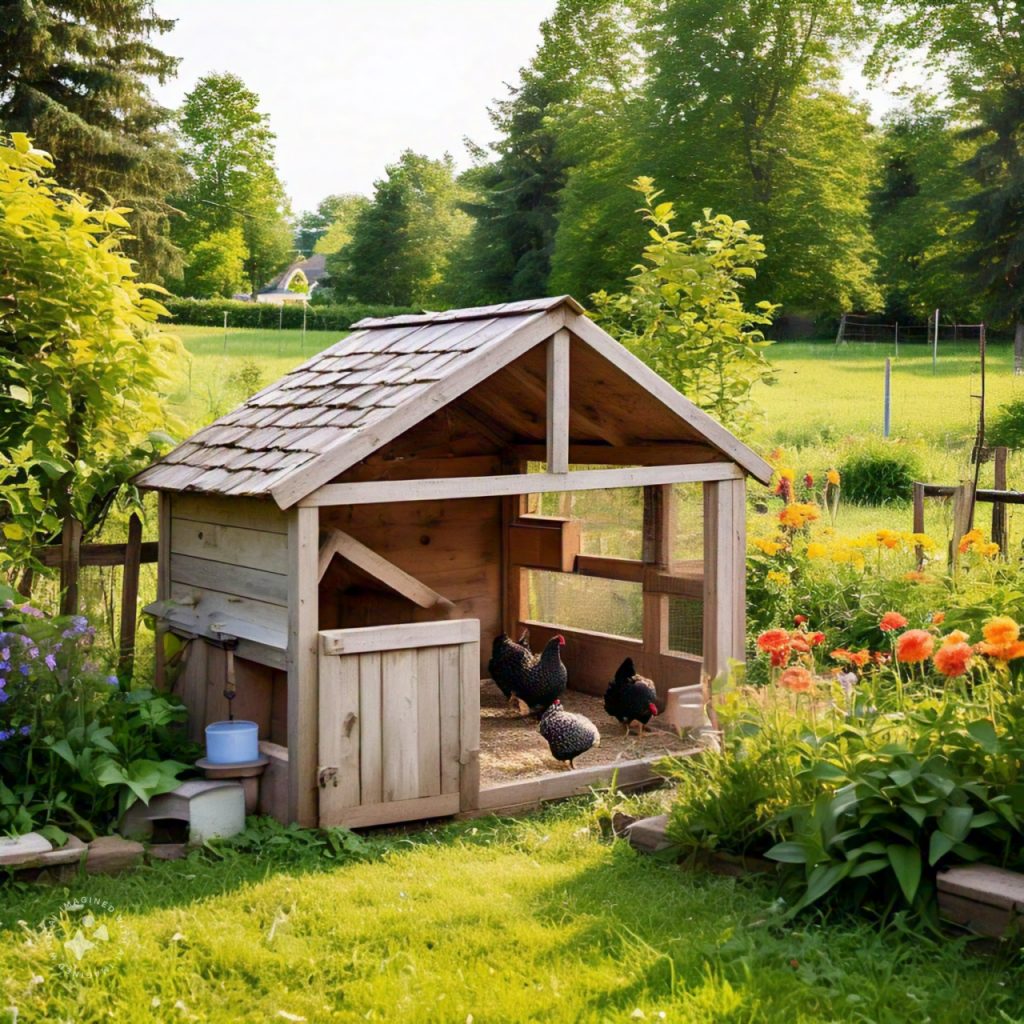1. Why Raise Backyard Chickens?
Backyard chickens offer several benefits that make them a valuable addition to your homestead:
- Fresh Eggs: Enjoy a steady supply of nutritious, fresh eggs with rich yolks.
- Sustainability: Reduce food waste by feeding chickens scraps while producing organic fertilizer.
- Pest Control: Chickens naturally forage for insects, slugs, and other garden pests.
- Educational Value: Raising chickens teaches responsibility and connects families with nature.
2. Preparing for Your Flock
Before diving into chicken ownership, proper preparation is key. Here’s what you need to consider:
A. Local Regulations
Research zoning laws and neighborhood regulations. Some areas limit the number of chickens or prohibit roosters due to noise concerns.
B. Choosing the Right Breed
Select chicken breeds based on your goals:
- Egg Production: Rhode Island Reds, Leghorns, or Australorps.
- Meat Production: Cornish Cross or Freedom Rangers.
- Dual-Purpose: Plymouth Rocks or Orpingtons.
- Pet-Friendly: Silkies or Bantams for their docile nature.
C. Building the Coop
Your chicken coop is their home. Ensure it provides:
- Adequate Space: Allow 2–3 square feet per chicken inside the coop and 8–10 square feet in the run.
- Ventilation: Prevent respiratory issues with proper airflow.
- Nest Boxes: Provide one box for every 3–4 hens for egg-laying.
- Security: Protect from predators like raccoons and hawks with reinforced wire and secure latches.
3. Feeding and Nutrition
Proper nutrition ensures healthy, productive chickens.
A. Diet Basics
- Starter Feed: For chicks up to 8 weeks old.
- Grower Feed: For pullets (young hens) between 8–18 weeks.
- Layer Feed: For laying hens, enriched with calcium for strong eggshells.
B. Supplements
- Grit: Helps grind food in their gizzard.
- Oyster Shells: Provides extra calcium for layers.
- Kitchen Scraps: Offer treats like vegetable peels, grains, and fruit but avoid toxic foods like avocado, chocolate, or onion.
C. Fresh Water
Clean, fresh water is vital. Use waterers that prevent spillage and contamination.
4. Daily Care Routine
Keeping chickens healthy requires consistent care. Your daily routine should include:
- Morning: Let chickens out of the coop and check feed and water levels.
- Afternoon: Observe their behavior and gather eggs.
- Evening: Secure the coop to keep predators at bay.
5. Health and Well-Being
A. Common Health Issues
Watch for signs of illness, such as lethargy, loss of appetite, or abnormal droppings. Common issues include:
- Parasites: Treat mites and lice with diatomaceous earth or poultry dust.
- Respiratory Infections: Ensure good coop ventilation to prevent these.
- Egg Binding: Provide adequate calcium and monitor laying hens.
B. Vaccinations and Deworming
Vaccinate chicks for common diseases like Marek’s disease and periodically deworm adult chickens.
6. Raising Chicks
If starting with chicks, here’s what you need to know:
- Brooder Setup: Keep chicks in a warm, draft-free brooder with a heat lamp.
- Temperature Control: Start at 95°F, reducing by 5°F weekly until they’re fully feathered.
- Socialization: Handle chicks gently to build trust and reduce stress.
7. Seasonal Care
A. Winter Care
- Prevent Frostbite: Apply petroleum jelly to combs and wattles.
- Warm Bedding: Use straw or wood shavings for insulation.
- Lighting: Supplement light to maintain egg production.
B. Summer Care
- Hydration: Provide cool water and shade.
- Dust Baths: Allow chickens to create dust baths for parasite control.
8. Handling Eggs
A. Collecting Eggs
Gather eggs daily to prevent cracking or contamination.
B. Cleaning Eggs
- Dry Cleaning: Use a brush or cloth to remove dirt.
- Wet Cleaning: Use warm water for stubborn stains but refrigerate immediately after.
C. Storage
Store eggs in a cool, dry place or refrigerate for longer shelf life.
9. Integrating Chickens into Your Garden
Chickens and gardens can coexist harmoniously:
- Compost Creation: Add chicken manure to your compost for a nutrient-rich amendment.
- Garden Patrol: Let chickens forage for pests but use fencing to protect delicate plants.
- Crop Rotation: Use chickens to till soil and fertilize between planting cycles.
10. The Joys of Backyard Chicken Keeping
Beyond practicality, raising chickens is a rewarding hobby. They bring life and energy to your backyard, create opportunities for learning, and provide a sustainable way to enjoy fresh food. With proper care, your flock will thrive, giving you years of enjoyment.
FAQs
- How many chickens should I start with?
A small flock of 3–6 chickens is ideal for beginners. - Do I need a rooster?
No, hens lay eggs without a rooster. Roosters are only needed for fertilized eggs. - How long do chickens live?
Chickens can live 5–10 years, with egg production peaking in the first 2–3 years. - Can chickens coexist with other pets?
Yes, but introduce them carefully to ensure safety.
By following this guide, you’ll set yourself up for success in raising happy, healthy backyard chickens. From fresh eggs to sustainable living, these feathered companions will enrich your life in countless ways.

